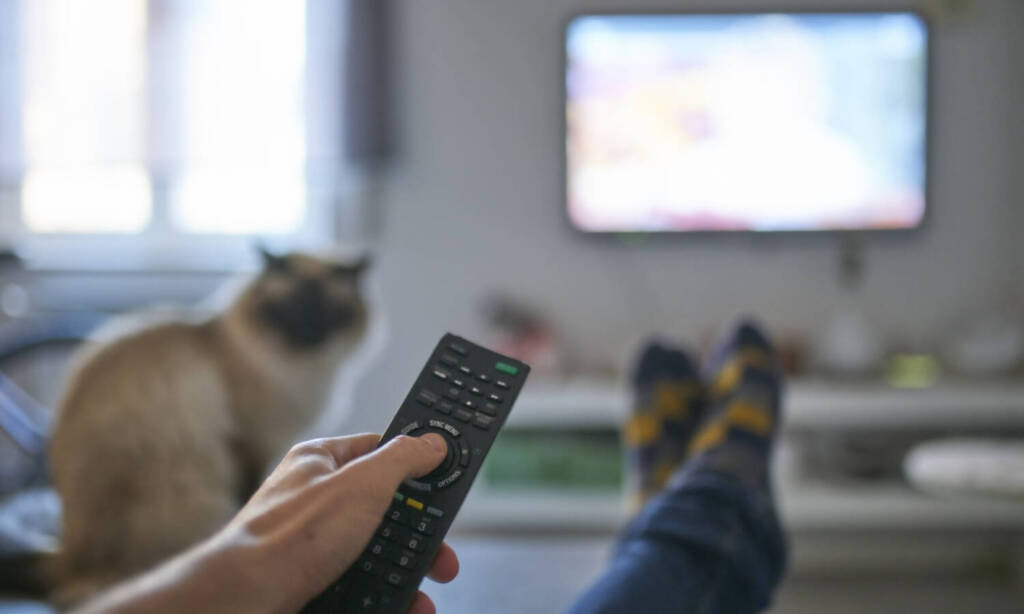TV is usually associated with eye problems, not brain problems. But a new study found a link between too much TV and dementia in older adults.
We’ve all been taught that watching too much TV will rot our brains, but that idea might not be too far off. A new study found a connection between dementia and sitting in front of the TV for too long. To make this news worse, the number of hours spent watching TV isn’t even that high before it starts to impact the health of your brain.
The study, conducted by researchers in England, found that TV poses a threat for dementia in older adults. According to researchers, just 24 hours of TV a week can be enough to impact your brain. That’s just 3.4 hours of TV a day.
RELATED: Eating This Food Can Extend Your Life, New Study Reveals

The majority of studies conducted on the impact of TV are usually done on children and young adults, with researchers finding this the biggest source of concern. This recent study took a new approach, trying to understand the effect of TV on people over the age of 50.
Over 3,600 people, with a median age of 67 and with no dementia diagnosis, participated in the study. Results showed that participants who watched over 24.5 hours of TV a week had an 8-10% decrease in their verbal memory. In comparison, participants who watched less than 24.5 hours of TV a week only experienced a 4-5% of decrease.

“Research suggests that television is a bit of unusual activity for the brain because you’ve got lots of bright and fast-moving images so your brain is very alert, but at the same time it is quite a passive activity to engage in, and this has been shown to lead to a less-focused brain,” said Ph.D. Daisy Fancourt, one of the lead authors of the study.
RELATED: Men Living Alone Are At Greater Risk Of Suffering From This
While the study looked into the effects of TV, it probably suggests that older adults should complement their TV viewing with other activities, staying active and engaging their brain in other ways, eliminating a bit of its negative influence.


